Music for Alfred Hitchcock
Alfred Hitchcock commissioned his film scores from composers who were Hollywood's master-craftsmen. The concert items prepared from those scores — some of them in versions receiving their first recordings here — feature a dazzling variety of styles, from Baroque and jazz to dark Romanticism and angular angst, all using the orchestra with breathtaking virtuosity.
Danish National Symphony Orchestra, orchestra
John Mauceri, conductor
Listen To This Recording:
- The Man Who Knew Too Much: Concert Overture (1956; ed. Mauceri)
- Rebecca: Suite (1940; ed. Mauceri)
- I Prelude
- II Lisa – Intermezzo
- III Ballet
- IV Lisa – Finale
- Strangers on a Train: Suite (1951; ed. Mauceri)
- Dial M for Murder: Suite (1954; ed. Mauceri)
- Prelude
- Scène d’Amour
- North by Northwest: main titles (1959)
- Psycho: A Narrative for String Orchestra (1960/1968; restored and ed. Mauceri)
- The Man Who Knew Too Much: The Storm Clouds – Cantata (1934; arr. Herrmann, 1956)
- Hitchcock: Music from the End Credits (2012)
Rear Window: Suite (1954; ed. Mauceri)
Vertigo (1958)
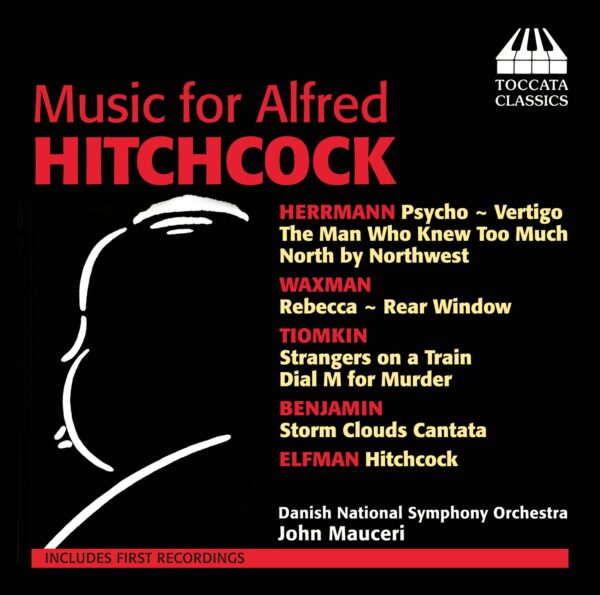
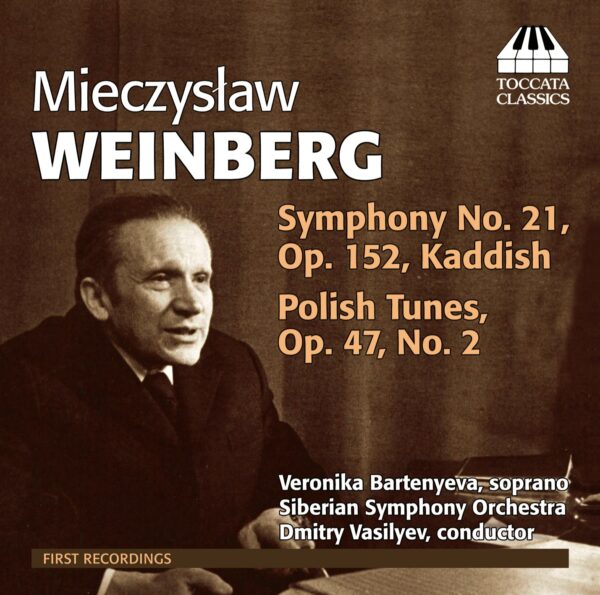
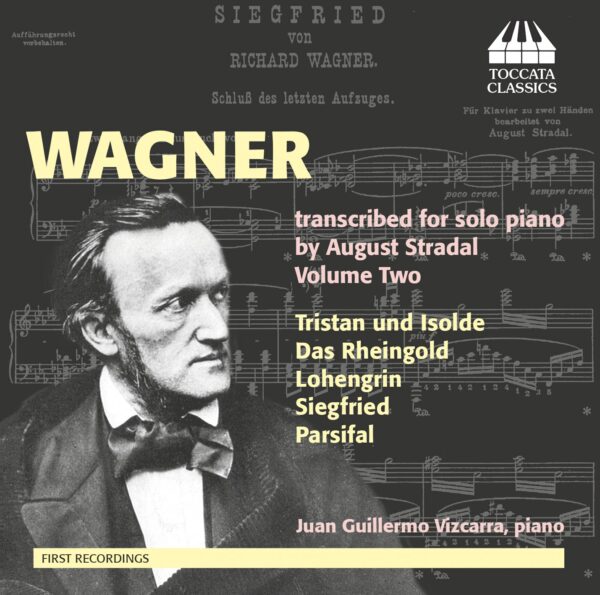
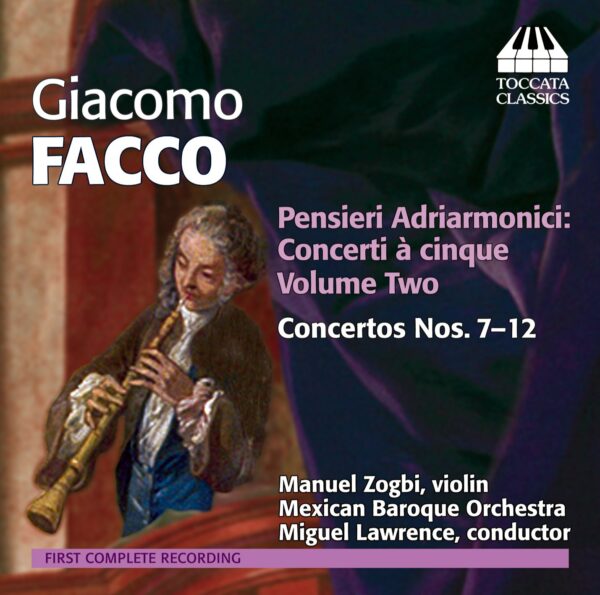
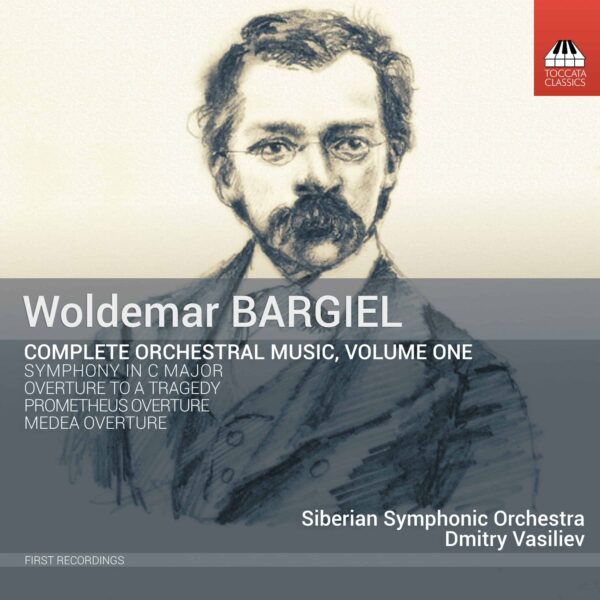
John Sunier :
“Wow, what a terrific filmscore album, containing four recording premieres: The opening Overture, the two suites of filmscore music by Dmitri Tiomkin, and the nearly 16-minute Narrative for Strings on the themes of Psycho, which was restored and edited by Mauceri himself. This filmscore CD is so good it seems to qualify for a review by itself instead of in our next soundtrack CDs feature. The CD shows first of all that Herrmann wasn’t the only composer who scored the Hitchcock films, and also demonstrates the extremely wide variety of musical styles—from Baroque and jazz to dark Romanticism and angst—which Hitchcock matched perfectly to his films, using several different composers.” Audiophile Audition
BBC Music Magazine :
‘…the pluses are powerful: the orchestra’s flair, the vivid colours and audible adrenalin. Even the most dedicated film buff should deepen their appreciation as Hitchcock’s composers run the gamut from formal fugues through aching Romanticism to skittish jazz.’
—Geoff Brown, BBC Music Magazine
Film Score Monthly Online :
‘Toccata Classics has done the film music community a great service by bringing back classic film music recordings helmed by John Mauceri. …Exquisitely played music from Franz Waxman’s Rebecca (1940) follows in a suite from the classic score. The orchestra is simply superb, with perfect balance and articulations, rendering one of the best performances of this suite on record. …Klaudia Kidon’s performance is excellent, well balanced with the choir and orchestra. …Over the years, there have been a number of Hitchcock-based compilations. Some, like this one, cover the basics, while others delve into less explored territory. None of them are as well played, recorded and produced as this new Mauceri disc. …There are very few releases that have this much synergy going for them.’
—Steven A. Kennedy, Film Score Monthly Online
Infodad :
‘…There are times when the sheer cleverness of music composed for popular consumption makes it very much worth hearing – and the cleverness of arrangements and performances add to the fun. John Mauceri has edited and arranged a variety of works written for Alfred Hitchcock films by some of the best film composers of the 20th century, and the result is a Toccata Classics CD that is scarcely important in any grandiose way but is too enjoyable to ignore.’
—Infodad
International Record Review :
‘…Recordings of the music (either in part or in whole) have been numerous, but those wishing to experience it away from the film could hardly do better than to hear this version. …This release was clearly a labour of love for John Mauceri, who prepared the suites from the Waxman and Tiomkin scores, reclaimed the Psycho ‘Narrative’ from obscurity and draws a committed response from the Danish National Symphony Orchestra, which clearly enjoyed its outing into the film domain. …With excellent wide-ambience sound, this is a disc that takes its place among the best of those dedicated to Hitchcock and ‘his’ composers.’
—Richard Whitehouse, International Record Review
Classical Source :
‘…[Herrmann’s Concert Overture from The Man Who Knew Too Much:] The Overture is a splendidly boisterous piece with timpani to the fore. Benjamin’s cantata, as arranged for the re-make by Herrmann to make it more exciting as it protracts the action, a search for the assassin in the Royal Albert Hall. Klaudia Kidon and the Choir give a splendid performance which recalls the excitement of the film sequence which at nearly ten minutes is a long time in the cinema to keep an audience on the edge of its seats waiting for the climax. …[Vertigo:] The music is also dreamlike and has been compared to Tristan und Isolde. The Prelude music evokes feelings of acrophobia and vertigo as Saul Bass’s credits drop down to Hermann’s falling theme using strings and horns for the effect. In ‘Scène d’amour’ Tristan is evoked once again as Stewart tries to dress Judy as Madeleine, in a theme that feels otherworldly, a genuinely spooky nightmare from which he cannot wake up. Strangely enough, director Michel Hazanavicius, or his composer Ludovic Bource, used the same theme in The Artist – the 2011 Oscar-winning ‘silent’ film – to good effect although that film, being a romantic comedy, did not pack the same punch as the psychologically complex Vertigo. …Psycho: A Narrative for String Orchestra is a compilation of Herrmann’s themes from the 1960 film which he recorded in 1968. Here it has been restored and edited by Mauceri. The main theme in which the heroine (Janet Leigh) is seen driving away after stealing money from her bank employer, has almost the same effect that John Williams’s music for Jaws would have some fourteen years later. Not perhaps as reminiscent of Stravinsky as the Jaws theme is, but it is equally spine-tingling and perhaps all the more so, as the film, which was dark enough anyway, was shot in black and white. The music, written for strings only, has a very claustrophobic feel to it. The slow music takes us on a journey through the killer’s house, while the famous shower sequence in which we see nothing but imagine everything, is as scary as any horror scene in the whole of cinema. Hitchcock didn’t want any music at all for this sequence but was persuaded by Herrmann to include it. It is impossible now to imagine the knifing scene without Herrmann’s frightening stabbing strings. In fact it is impossible to imagine any frame of Psycho without its music, as it is a perfect example of visuals and sounds being impeccably matched. …All in all, this is a valuable addition to the recorded film music canon.’
—Michael Darvell, Classical Source
The Whole Note :
‘…The Danish National Symphony Orchestra under the direction John Mauceri (who edited six of the works) here performs music from Hitchcock films with grace, splenduor, colour, well-placed angst and appropriate creepiness, transforming “background soundscapes” to first class orchestral works that need no visuals. …The symphony musicians prove themselves to be gifted interpreters in the jazz-flavoured sections of the “Prelude” from Franz Waxman’s Rear Window: Suite. …Superb liner notes and production quality complete the package. Music for Alfred Hitchcock deserves a spot on every listener’s bucket list.’
—Tiina Kiik, The Whole Note
Fanfare Magazine :
‘… This generous collection of movie music written for Hitchcock will surprise anyone who links him solely with Herrmann. … By the time they wrote for Hitchcock, Waxman and Tiomkin had learned, via their love of jazz, how to sharpen suspense—and sex—with a modern, very American edge. Something feels seamlessly Hitchcockian about the music to Rebecca and Rear Window (Waxman), Strangers on a Train and Dial ‘M’ for Murder (Tiomkin), The Man Who Knew Too Much and North by Northwest (Herrmann), no matter who put pen to paper. … Yet Herrmann still reigns supreme. His celebrated score for Vertigo provides a through-line from scene to scene unmatched by anything that came before. … Herrmann anticipated Minimalism by using repetitive, motor-driven chords to build a haunting mood. I’m not sure that Philip Glass’s movie scores have advanced the art any further. Mauceri is an expert in this domain, and these are stirring, idiomatic performances of suites from some iconic Hitchcock movies, with Mauceri as the skilled editor.’
—Huntley Dent, Fanfare Magazine
Fanfare Magazine :
‘… There have been dozens, perhaps hundreds, of recordings of music for Hitchcock films, but this one is well-nigh indispensible. … The orchestra is top-notch—so good, in fact, that one wants to jump on the next plane and fly over to hear more of them. They play with the crystalline clarity of the brisk Nordic air. So transparent is the sound that you can even tell the exact pitches of the timpani… Much, if not all, of this music may be familiar to Hitchcock fans (I’m one of them), but they will still need this disc for the sensational playing, for Toccata’s stunning sound, for the white-hot intensity of Mauceri’s conducting, for the four numbers recorded for the first time “in this version,” and for whatever pieces they may have missed up to now.’
—Robert Markow. Fanfare Magazine
Fanfare Magazine :
‘… This disc has several things going for it. First, John Mauceri has a good ear for this music, and he seems even more sympathetic to this genre now than he did in his series of Philips discs with the Hollywood Bowl Orchestra back in the 1990s. The Danish National Symphony Orchestra is not as lush as the Hollywood Bowl Orchestra, but on the other hand, there’s a lightness of touch here that complements these often heavy-breathing scores. … What pushes it into the keeper category for me is the aura of the live recording, the clarity of the engineering, and the presence of the less familiar scores by Tiomkin and Waxman.’
—Raymond Tuttle, Fanfare Magazine
Fanfare Magazine :
‘Enthusiasts of film music have much to be thankful for over the past year. One of my very top choices is Music for Alfred Hitchcock, not just for the music, but for the spectacular playing of the Danish National Symphony Orchestra, conducted by John Mauceri with tremendous flair, rhythmic urgency, and obvious love for what he’s doing. Four numbers have been recorded for the first time (albeit “in this version” for some), including the opulently Romantic, larger-than-life “cantata” Bernard Herrmann arranged in 1956 from Arthur Benjamin’s score for the 1934 The Man Who Knew Too Much. Toccata’s stunning sound adds a further measure of pleasure.’
—Robert Markham. Fanfare Magazine Magazine, Want List of Robert Markham, November/December 2015
MusicWeb International :
‘There ‘s nothing second rate about the films featured on this album. […]
this is a very entertaining album; a good recording, too.’
—Dan Morgan, MusicWeb International
Fanfare Magazine :
‘Want List
Enthusiasts of film music have much to be thankful for over the past year. One of my very top choices is Music for Alfred Hitchcock, not just for the music, but for the spectacular playing of the Danish National Symphony Orchestra, conducted by John Mauceri with tremendous flair, rhythmic urgency, and obvious love for what he’s doing. […] Toccata’s stunning sound adds a further measure of pleasure.’
—Scott Noriega, Fanfare Magazine, November/December 2015
Fanfare magazine :
‘John Mauceri’s interpretations are, as expected, uniformly good […]
Mauceri’s performance of this suite is so good that it makes this CD required listening for any serious Waxman fan or film music collector.’
—Arthur Lintgen, Fanfare magazine, January/February 2014
Gramophone :
‘[Arrhur Benjamin’s The Storm] is given a terrific performance here by Klaudia Kidon with the Danish National Concert Choir. […]
The main performing plaudits on this disc go to the Danish National Symphony Orchestra under John Mauceri, of course, not least in the conductor restoration of the gripping ‘Narrative for String Orchestra’ Hermann made in 1968 from Psycho. This catches all the suspense, drama and terror of what remains one of the greatest film scores ever penned. […]
First class sound; strongly recommended.’
—Guy Rickards, Gramophone, January 2015
Film Music: A Neglected Art :
‘Featuring three of the finest composers from Hollywood; Herrmann, Waxman, and Tiomkin, John Mauceri offers a slightly different take on suites that have been created over the years of some of his biggest hits. John Mauceri has revised some of these suites to make a good one even better. As listeners we can only hope there will be more releases in the future. […]
Everything about this release is top notch from the John Riley liner notes to the Danish National Symphony Orchestra to the conducting of John Mauceri, and finally to the recording. It will be a most welcome addition to any collection and comes with my highest recommendation.’
— Film Music: A Neglected Art
Audiophile Audition :
‘Wow, what a terrific filmscore album, containing four recording premieres: The opening Overture, the two suites of filmscore music by Dmitri Tiomkin, and the nearly 16-minute Narrative for Strings on the themes of Psycho, which was restored and edited by Mauceri himself. This filmscore CD is so good it seems to qualify for a review by itself instead of in our next soundtrack CDs feature. The CD shows first of all that Herrmann wasn’t the only composer who scored the Hitchcock films, and also demonstrates the extremely wide variety of musical styles—from Baroque and jazz to dark Romanticism and angst—which Hitchcock matched perfectly to his films, using several different composers.
The booklet, by John Mauceri and John Riley, has all sorts of fascinating information about Hitchcock and the various composers he used.’
—John Sunier, Audiophile Audition
The Ultimate Classical Music Guide :
‘Marvellous disc from Toccata Classics […] It’s marvellous, just marvellous. Hitchcock always gets the best composers, and they did some of their best works for him. This is a wonderful collection […] What a great collection of stuff, Oh my world!! […] The sonics are perfectly good […] We should be celebrating collections like this, especially when they acknowledge the works of a master filmmaker like Hitchcock and genius composers. All of these guys were first class composers and film music guys afterwards. They knew what they were doing, how to capture a scene or atmosphere, how to write a good tune on a dime. […] You should definitely give this a shot and listen to [this].’
—David Hurwitz, The Ultimate Classical Music Guide
Classical Net :
‘This disc of Hitchcock music, all conducted (and mostly arranged) by veteran conductor John Mauceri, proves nothing short of a Godsend for film freaks. While you could raise your brows at Danish musicians playing American movie scores, I promise you that weirder things have happened in this industry, and Mauceri is a real pro. […]
Mauceri’s arrangement of the music into suites is a highly enjoyable way to discover this music, and they are generally successful. […]
…fans of these films absolutely need this, and the sound is excellent. Thank you, Toccata Classics!’
—Brian Wigman, Classical Net
Sunday Times :
‘Hitchcock was the enabler of many hours of orchestral music that are part of the 20th century’s legacy. Herrmann’s scores for Vertigo and Psycho, and Franz Waxman’s for Rear Window, stand out […] the Wagnerian Scène d’Amour, from Vertigo, comes over as one of the great slow movements.’
—Sunday Times
Opus Klassiek :
‘Mauceri heeft uit de overvloed aan partituren een veelkleurige selectie gemaakt, representatief voor de betrokken componisten.
Het Deense orkest lijkt een merkwaardige keuze voor zo’n programma, maar het laat zich van zijn beste kant zien. Veel orkesten zullen de partituur voor Rear Window van Waxman liever vermijden vanwege het jazzy karakter van de muziek – de Denen hebben er geen moeite mee. […]
Waar Mauceri recht in de roos schiet is met de suite uit Rebecca, door hem zelf samengesteld en met passsie verdedigd. Waxman is een schromelijk onderschat genie, en dit is muziek die een plaats verdient op de lessenaars van alle symfonieorkesten. Toccata Classics is een jong label dat zich met durf stort op nieuw repertoire, en presenteert zich in de stijl van nu. De uitstekende toelichting – 21 pagina’s in het Engels – kunt u op onderstaande website lezen. Een prikkelende aanwinst.’
English translation:
‘Mauceri has made a colorful selection from the abundance of scores, representative of the composers involved.
The Danish orchestra seems a strange choice for such a program, but it shows its best side. Many orchestras would rather avoid Waxman’s score for Rear Window because of its jazzy character – the Danes have no problem with it. […]
Where Mauceri hits the mark is with the suite from Rebecca, which he himself composed and passionately championed. Waxman is a vastly underrated genius, and this is music that deserves a place on the music stands of all symphony orchestras. Toccata Classics is a young label that boldly tackles new repertoire and presents itself in the style of today. You can read the excellent 21-page English-language liner notes on the website below. A stimulating addition.’
—Siebe Riedstra, Opus Klassiek